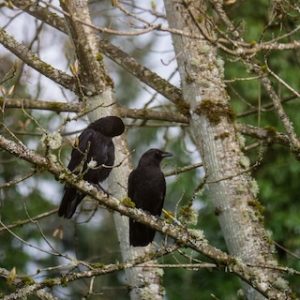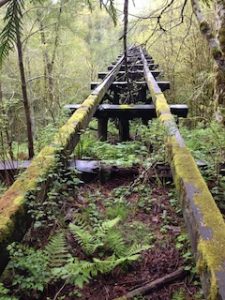 The Columbia City Yoga on-line Moving into Meditation class met this morning. We reflected on the vast web of inter-being of which we are a part. Our capacity for listening and for witnessing each other arouses deep caring and empathy. When we recognize our shared humanity we realize ourselves as pilgrims in the kinship of time.
The Columbia City Yoga on-line Moving into Meditation class met this morning. We reflected on the vast web of inter-being of which we are a part. Our capacity for listening and for witnessing each other arouses deep caring and empathy. When we recognize our shared humanity we realize ourselves as pilgrims in the kinship of time.
We heard Buddhist Chaplain Willa Blythe Baker speak of our human need to be witnessed in her Tricycle Magazine article, Listening as Spiritual Care. She avows a commitment to being a good listener.
We heard Jan Richardson’s beautiful poem, For Those Who Have Far to Travel.
We contemplated ourselves as flows of energy and consciousness embedded in the deep time of past, present and future. We are conditioned by the doings of those in the past and present. Our doings condition the present and the future. The choices we make may be more important that we can know.
In meditation, we created a broad field of loving awareness. We drew on our imagination, kindness, empathy and compassion to include others in our circle of caring.
Welcome. Last week we contemplated the ways we are called to love and courage. We reflected on how our practice of mindfulness develops the ability to listen deeply and to stay with difficult truths. This week I thought about how our technological advances have enabled us to communicate with more people and more places than ever before. Yet we’ve drifted away from many of the traditional gathering spaces in which we can actually touch each other, read each other’s body language and give our faces to one another without screens.
I think we may be missing the healing qualities of attuned attention. The kind of attention that enables us to come alongside an other whether it may be in sharing breath, grief or illness. We may be missing the opportunities to hear the stories of others and bear witness to their joys and sorrows. In her recent Tricycle Magazine article, Listening as Spiritual Care, Buddhist Chaplain, Will Blythe Baker writes about these opportunities in defining the term “spiritual care” which
. . . captures the reality that, in order to thrive, humans need more than medical and psychological care. There is some part of us that is nourished and cared for by spiritual practice, spiritual community, and spiritual presence in our lives. . . . [humans] seek to be witnessed. . . . To be a witness involves being present to others, listening to others . . . To witness is to be permeable, to be willing to look and listen. . . . I have not always been a good listener, and I do not claim to be one now. Rather, I see listening, like dharma learning and teaching, as a lifelong practice needing consistent cultivation. . . .
Remarkable things happen when we leave space for an answer, or non-answer, to emerge on its own.
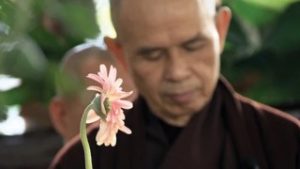 I haven’t always been a good listener either. I aspire to listen as a lifelong practice. I have experienced some remarkable things in the space that allows an answer to emerge on its own. This is something we can offer one another. I’ve been meeting with a spiritual study group for the past twelve months. We’ve been exploring the nature of life and preparing for death. Each one of us is, in turn, a student and a teacher. This week I was privileged to hear my friends’ life stories. I heard how they imagined their time of dying. I’ve learned who and what is most important to them, who and what they are grateful for and how they would like to be remembered.
I haven’t always been a good listener either. I aspire to listen as a lifelong practice. I have experienced some remarkable things in the space that allows an answer to emerge on its own. This is something we can offer one another. I’ve been meeting with a spiritual study group for the past twelve months. We’ve been exploring the nature of life and preparing for death. Each one of us is, in turn, a student and a teacher. This week I was privileged to hear my friends’ life stories. I heard how they imagined their time of dying. I’ve learned who and what is most important to them, who and what they are grateful for and how they would like to be remembered.
These sharing experiences have taught me to recognize each of us as a flow of consciousness and energy. All flows move in and out of the web of life and across deep time. Deep time encompasses the past, the current and the future interconnections woven throughout history. What we say and do today are conditioned by the past. Our sayings and doings matter to our future and the future of others. In his Tricycle article,
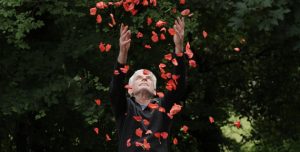 I am reminded of the saying “We control nothing, but influence everything.” This recognition alone gives me pause for compassion. We can never know all the seeds of our conditioning. And, we can know they will, in part, determine the future. We Practice for each other. We can practice to clarify our intentions. We can practice heartfelt listening. We can practice goodwill. We can learn to see each other.
I am reminded of the saying “We control nothing, but influence everything.” This recognition alone gives me pause for compassion. We can never know all the seeds of our conditioning. And, we can know they will, in part, determine the future. We Practice for each other. We can practice to clarify our intentions. We can practice heartfelt listening. We can practice goodwill. We can learn to see each other.
I think Jan Richardson’s poem, For Those Who Have Far to Travel speaks to our life’s journey:
If you could see
the journey whole
you might never
undertake it;
might never dare
the first step
that propels you
from the place
you have known
toward the place
you know not.
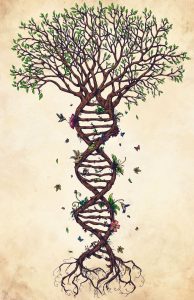 Call it
Call it
one of the mercies
of the road:
that we see it
only by stages
as it opens
before us,
as it comes into
our keeping
step by
single step.
There is nothing
for it
but to go
and by our going
take the vows
the pilgrim takes:
to be faithful to
the next step;
to rely on more
than the map;
to heed the signposts
of intuition and dream;
to follow the star
that only you
will recognize;
to keep an open eye
for the wonders that
attend the path;
to press on
beyond distractions
beyond fatigue
beyond what would
tempt you
from the way.
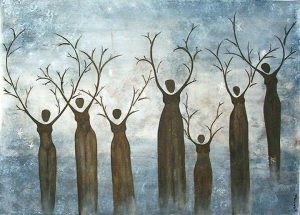 There are vows
There are vows
that only you
will know;
the secret promises
for your particular path
and the new ones
you will need to make
when the road
is revealed
by turns
you could not
have foreseen.
Keep them, break them,
make them again:
each promise becomes
part of the path;
each choice creates
the road
that will take you
to the place
where at last
you will kneel
to offer the gift
most needed—
the gift that only you
can give—
before turning to go
home by
another way.
We are pilgrims in kinship time. We take one step at a time toward our final offering. Practice offers the space and time to learn the “vows that only you will know; the secret promises for your particular path and the new ones you will need to make when the road is revealed by turns you could not have foreseen.”
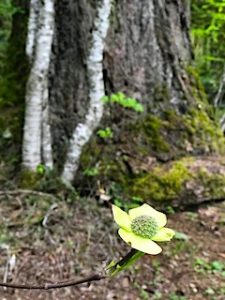 Let us practice now. Give your body the space and time to settle, gradually releasing what you can. Adjust your posture as needed. Rest your awareness inside the movements and sensations of breathing in the whole body. Feel breathing in front, back and sides. Feel breathing inside the body, over the surface of the body. Whole body breathing.
Let us practice now. Give your body the space and time to settle, gradually releasing what you can. Adjust your posture as needed. Rest your awareness inside the movements and sensations of breathing in the whole body. Feel breathing in front, back and sides. Feel breathing inside the body, over the surface of the body. Whole body breathing.
Can you allow the breath to be saturated with kindliness and tenderness toward yourself? Saturate your breath with kindliness the way the water of the ocean is saturated with salt.
See if you can you allow all that is unpleasant and all that is pleasant to arise and pass away in an open field of awareness. Notice not having to push away unpleasant or cling to pleasant. Rest is a spacious, stable and kindly field of awareness. Receptive awareness holds everything.
I invite you to bring to mind a friend. Someone for whom you have feeling of friendliness. Imagine inviting them into your field of awareness, either as an image, a feeling, or any other imaginative way that works for you. Stay grounded in your experience and expand your awareness to include your friend. Sit quietly with your friend, gently breathing together. You might begin reflecting on all that you share with your friend. The two of you look different and the details of your lives are different. And you’re both breathing in and out in the same way. As you breathe together you might sense that beneath the superficial differences you are so alike.
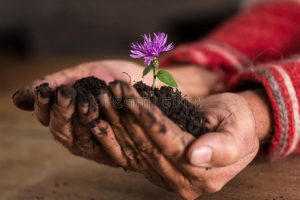 Your friend will have unpleasant experiences they tend to resist and push away or get overwhelmed by, and pleasant experiences they tend to cling to, in the same way as you do. You might imaginatively reach over the sense of difference and separation to a sense of common humanity with your friend. Breathing and dwelling on what you share.
Your friend will have unpleasant experiences they tend to resist and push away or get overwhelmed by, and pleasant experiences they tend to cling to, in the same way as you do. You might imaginatively reach over the sense of difference and separation to a sense of common humanity with your friend. Breathing and dwelling on what you share.
You and your friend are on this pilgrimage through life. On the in-breath, breathe in a sense of connection with your friend; breathe out kindliness and well-wishing for your friend. Let this include everything that you wish for yourself—compassion, contentment, fulfillment. Wish all that is needed to flourish for your friend.
Now you might broaden your awareness to include others. Imagine each of us as a thread in a great fabric of inter-dependence. A pull of one thread influences the whole fabric of inter-being. Each of us breathing, feeling, experiencing life’s joys and sorrows.
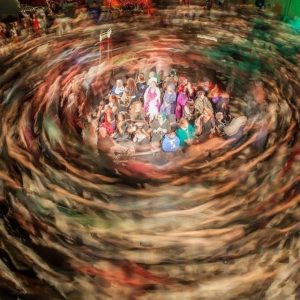 Can there be a sense of kinship or fellow feeling knowing how we are woven together in this life? Can you empathize with other beings as you realize how alike we all are deep down? To the extent that we know ourselves, honestly and authentically, we know humanity. To the extent that we acknowledge our own suffering, we know what it’s like for others to suffer. To the extent that we know our own openness of heart, joy, and happiness, we know what it’s like for others to have joy and happiness, and we can delight in this.
Can there be a sense of kinship or fellow feeling knowing how we are woven together in this life? Can you empathize with other beings as you realize how alike we all are deep down? To the extent that we know ourselves, honestly and authentically, we know humanity. To the extent that we acknowledge our own suffering, we know what it’s like for others to suffer. To the extent that we know our own openness of heart, joy, and happiness, we know what it’s like for others to have joy and happiness, and we can delight in this.
Breathe in a sense of interest and connection with humanity and breathe out kindliness and well-wishing to all humanity. As you are ready, you can rest into this open field of loving awareness. You can remain centered and grounded in your experience and expand your awareness to include all life everywhere.
Rest inside the movements and sensations of the breath in your body and have a sense of the whole world breathing also. A ceaseless, gentle movement and flow. Allow the whole world to be bathed and saturated in a kindly, loving breath—in and out.
As you are ready you can let go of the meditation. See if you can maintain a sense of openness toward yourself and toward others with a sense of softness in your body and the breath. Gently open your eyes and move your body. Let this sense of connectedness move with you. Carry it into your life.

